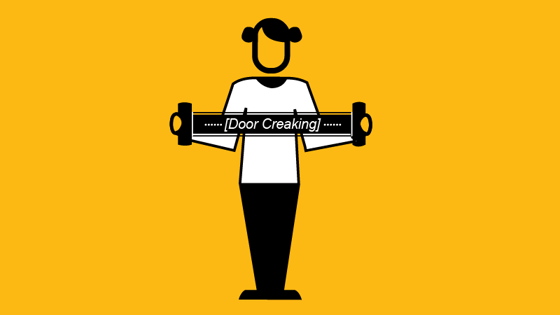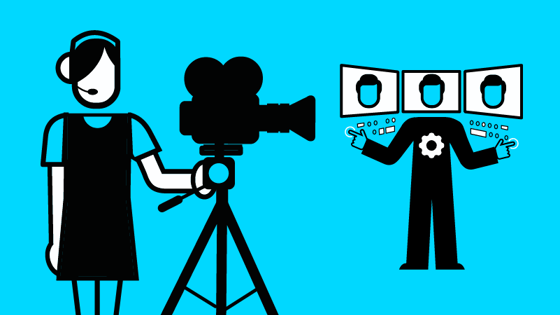Post-production
Subtitler (Post-production)

What does a subtitler do?
Subtitlers make it possible for films and TV programmes to be enjoyed by audiences all over the world and by the deaf and hard of hearing. They translate all the dialogue, music and sound effects into two-line written captions that appear on the screen, either in the language in which the film is made or in a foreign language.
On a feature film, subtitlers watch and listen to the whole film. They write captions with accurate time codes that describe music and sound effects as well as the dialogue and voiceovers. The captions have to be punctuated and spelt correctly and should be on the screen long enough to be read easily. Translating subtitlers translate the dialogue and write subtitles in the language for a particular audience.
Once they’ve done that and checked all the spelling is correct and that the captions don’t obscure characters’ faces, the files are sent to the mastering house, where they are transferred onto the final soundtrack of the film in all the various formats. The film can then be distributed to cinemas offering subtitled screenings or to cinemas around the world. Film subtitlers are usually employed by specialist post-production companies, but sometimes work on a freelance basis.
Subtitlers for television are more likely to be hired by broadcasters, such as the BBC or Channel 4, than post-production houses. They create the subtitles for pre-recorded TV programmes, often creating them using voice-activated software. On live programmes, they have to do hours of research anticipating the words or phrases that might come up, to make it easier to subtitle accurately live.
Watch
What's a subtitler good at?
- Concentration: be able to focus, particularly if you are doing live subtitling for broadcasting
- Attention to detail: work precisely to tight deadlines with text and timing
- Grammar: be able to spell, punctuate and use grammar accurately
- Languages: translate the dialogue into the required language sensitively (for translator subtitlers)
- Interest in deaf audiences: care about the experiences of the deaf and hard-of-hearing
How do I become a subtitler?
Many post-production companies that offer subtitling services train the subtitlers themselves. Or you could do an MA in subtitling.
At school or college:
A-levels or Highers in drama and theatre, English, modern foreign languages, music, art and design, photography, graphic design, graphic communication and media studies are useful.
Get a degree:
If you want to be a translator subtitler, then a degree in your chosen language is excellent preparation. Or you could do a degree in a subject you really enjoy and then study for a Masters in subtitling.
Network:
Go to ScreenSkills events, especially Open Doors where you can meet people who work in post-production. Go to our page on training, events and opportunities and click on events.
Look on the websites of post-production facilities:
Ask if you can do work experience. See if they are looking for a subtitler.






